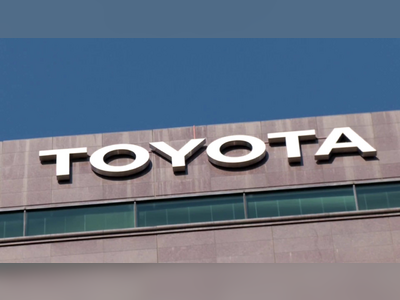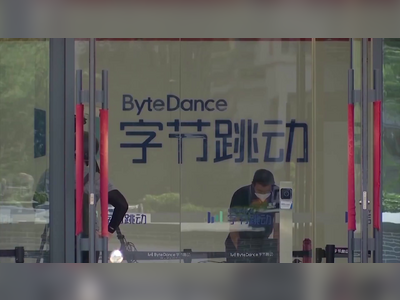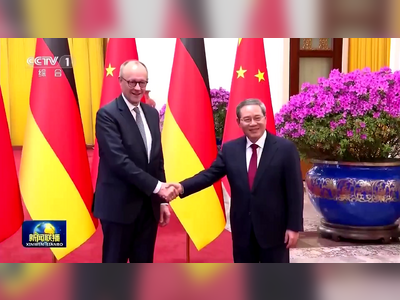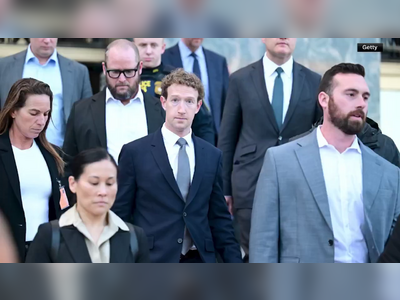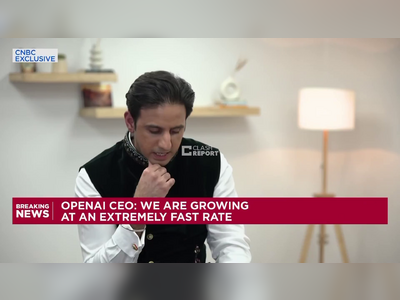Barnier's Administration in France Confronts Unprecedented No-Confidence Vote
A political stalemate in Paris prompts questions about governance, resilience, and the future of one of Europe’s key nations.
France is accustomed to political turmoil, yet the current crisis in Paris might become a pivotal chapter in the country's modern history. Prime Minister Michel Barnier’s administration is on the brink of collapse as a no-confidence vote looms with a high likelihood of his removal. If it succeeds, it would be the first time since the early 1960s that a French government has fallen to such a motion, throwing the nation into unfamiliar territory.
The stakes are extremely high. The recently formed fragile government is struggling to operate in a divided parliament without a definitive majority. Barnier’s proposed budget—a contentious blend of tax increases and spending cuts totaling sixty billion euros—faces strong opposition from the far-right National Rally, led by Marine Le Pen, and the far-left New Popular Front alliance. This unlikely coalition against the centrist government underscores the deep divisions in French politics.
Appointed by President Emmanuel Macron after snap elections this year, Barnier has defended the budget as essential for stabilizing France’s finances. “The moment is serious,” he told lawmakers on Tuesday. “It is difficult, but the stakes are not impossible.” Yet, critics argue that the reforms are harsh and unjust, accusing Barnier of targeting ordinary citizens while neglecting systemic inefficiencies.
Le Pen has capitalized on the situation, portraying herself as a defender of the French people, deeming the budget “dangerous” and pledging to protect the nation from “punitive austerity.” However, her alliance with the far-left carries its own risks. Although polls show strong support from her base for opposing the government, more moderate conservatives may perceive her cooperation with ideological adversaries as politically opportunistic.
The consequences extend beyond France’s borders. As one of the EU's largest economies and a key player in the bloc, France's political instability resonates throughout the continent. President Macron, currently on a diplomatic mission abroad, warned that the vote could worsen an already fragile economic and social situation. European leaders are monitoring closely, especially as financial markets remain volatile amid global uncertainties, such as the potential return of Donald Trump to the White House.
Domestically, Barnier's potential removal could have significant repercussions. The French constitution prevents new elections before July, leaving a caretaker government to handle crucial fiscal and social policies. This temporary measure would likely mean extending current budget provisions, avoiding immediate economic paralysis but lacking long-term solutions.
The broader issue is whether France’s political system can endure this turmoil. The far-left and far-right’s ability to unite against the government highlights the increasing polarization within the electorate. With trust in political institutions dwindling, Barnier’s failure could further erode confidence in traditional governance, possibly paving the way for more extreme options.
France’s finance minister has warned that removing the government would “harm the nation” and leave the French people to face the repercussions. Yet, many opposition MPs see drastic action as the only way forward. One leftist lawmaker stated, “Blocking this budget is, unfortunately, the only constitutional means we have to protect the French people.”
The unfolding drama in Paris is not just a leadership crisis—it’s a test of France’s identity and resilience. Will the nation’s democratic institutions meet the challenge, or will this moment signal a deeper slide into political dysfunction?
As France prepares for what some call a “moment of truth,” one certainty remains: the decisions made this week will influence the country's path for years. Whether through compromise or confrontation, France must find a way to bridge its divisions and reaffirm its commitment to democracy, accountability, and the common good.
The stakes are extremely high. The recently formed fragile government is struggling to operate in a divided parliament without a definitive majority. Barnier’s proposed budget—a contentious blend of tax increases and spending cuts totaling sixty billion euros—faces strong opposition from the far-right National Rally, led by Marine Le Pen, and the far-left New Popular Front alliance. This unlikely coalition against the centrist government underscores the deep divisions in French politics.
Appointed by President Emmanuel Macron after snap elections this year, Barnier has defended the budget as essential for stabilizing France’s finances. “The moment is serious,” he told lawmakers on Tuesday. “It is difficult, but the stakes are not impossible.” Yet, critics argue that the reforms are harsh and unjust, accusing Barnier of targeting ordinary citizens while neglecting systemic inefficiencies.
Le Pen has capitalized on the situation, portraying herself as a defender of the French people, deeming the budget “dangerous” and pledging to protect the nation from “punitive austerity.” However, her alliance with the far-left carries its own risks. Although polls show strong support from her base for opposing the government, more moderate conservatives may perceive her cooperation with ideological adversaries as politically opportunistic.
The consequences extend beyond France’s borders. As one of the EU's largest economies and a key player in the bloc, France's political instability resonates throughout the continent. President Macron, currently on a diplomatic mission abroad, warned that the vote could worsen an already fragile economic and social situation. European leaders are monitoring closely, especially as financial markets remain volatile amid global uncertainties, such as the potential return of Donald Trump to the White House.
Domestically, Barnier's potential removal could have significant repercussions. The French constitution prevents new elections before July, leaving a caretaker government to handle crucial fiscal and social policies. This temporary measure would likely mean extending current budget provisions, avoiding immediate economic paralysis but lacking long-term solutions.
The broader issue is whether France’s political system can endure this turmoil. The far-left and far-right’s ability to unite against the government highlights the increasing polarization within the electorate. With trust in political institutions dwindling, Barnier’s failure could further erode confidence in traditional governance, possibly paving the way for more extreme options.
France’s finance minister has warned that removing the government would “harm the nation” and leave the French people to face the repercussions. Yet, many opposition MPs see drastic action as the only way forward. One leftist lawmaker stated, “Blocking this budget is, unfortunately, the only constitutional means we have to protect the French people.”
The unfolding drama in Paris is not just a leadership crisis—it’s a test of France’s identity and resilience. Will the nation’s democratic institutions meet the challenge, or will this moment signal a deeper slide into political dysfunction?
As France prepares for what some call a “moment of truth,” one certainty remains: the decisions made this week will influence the country's path for years. Whether through compromise or confrontation, France must find a way to bridge its divisions and reaffirm its commitment to democracy, accountability, and the common good.

